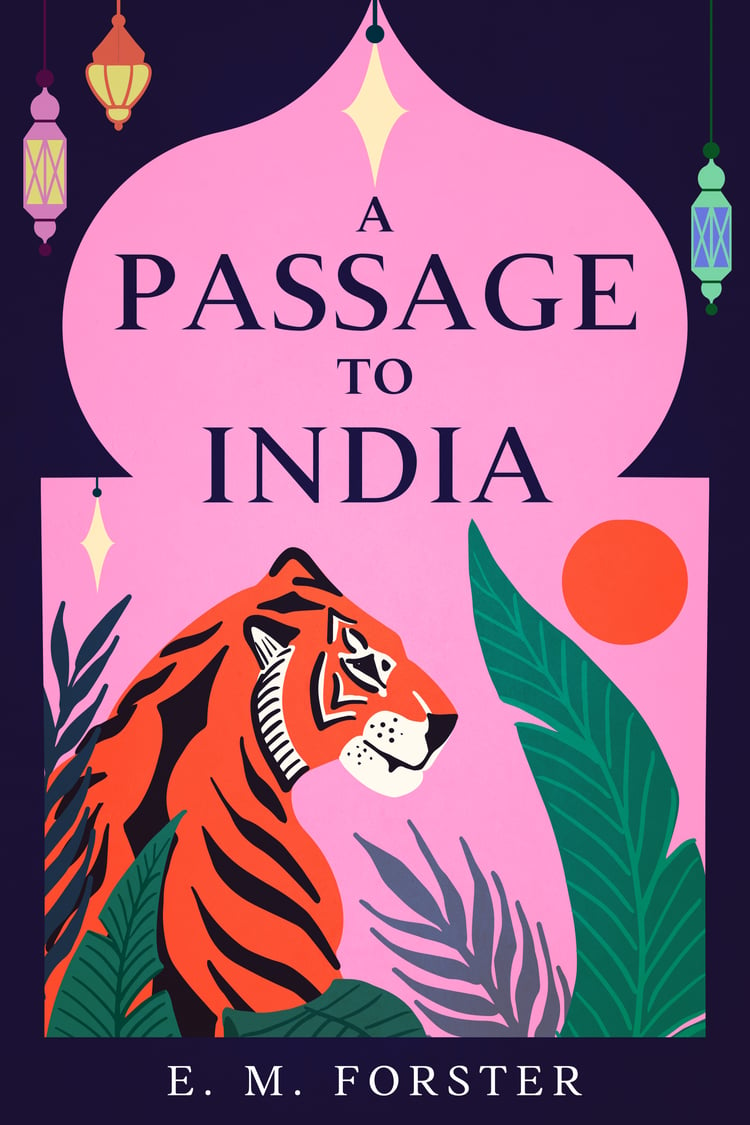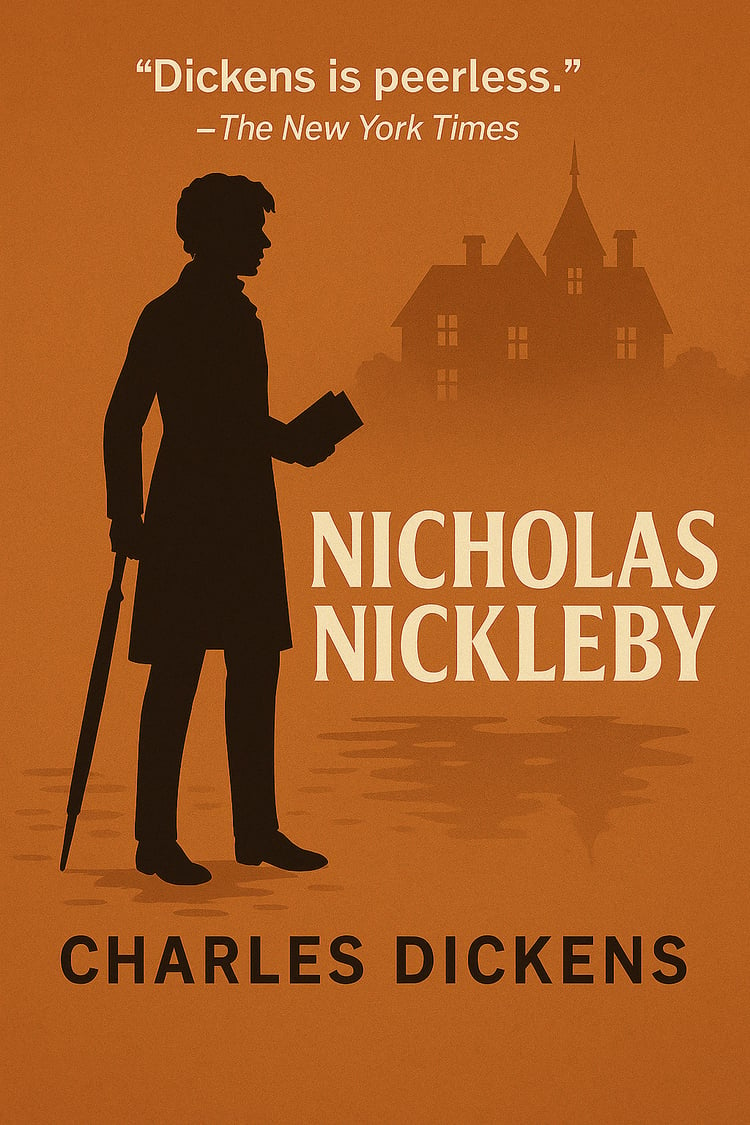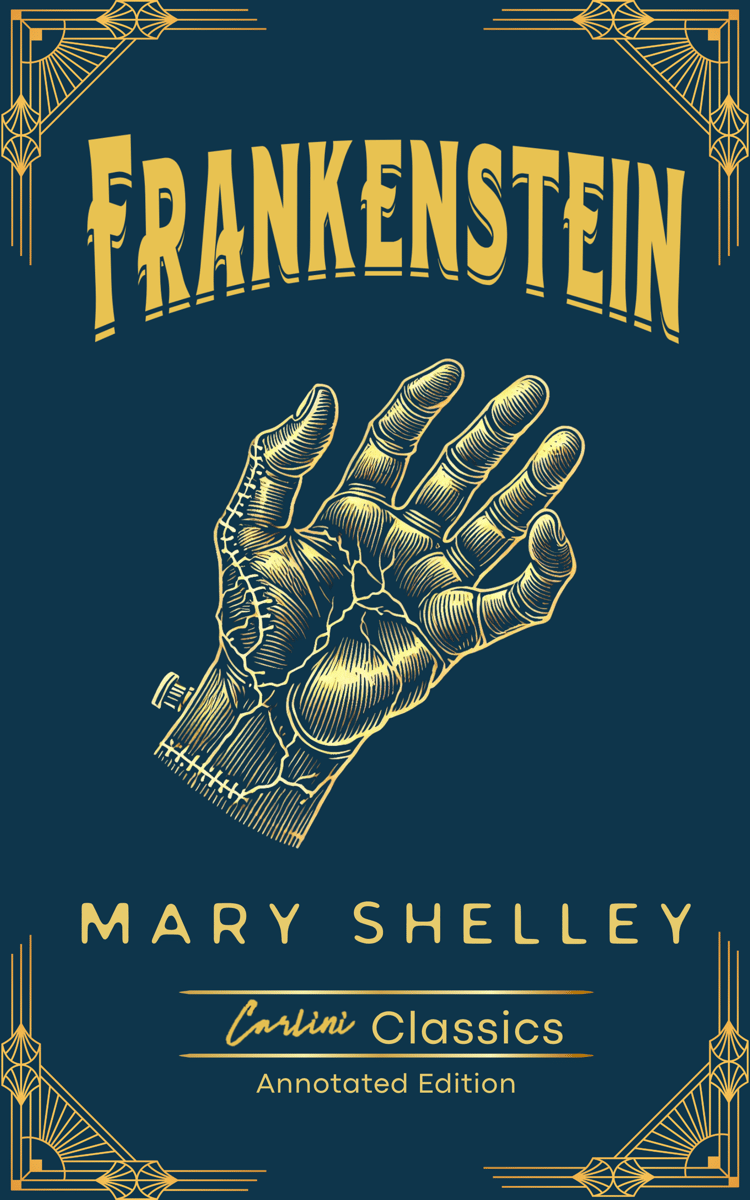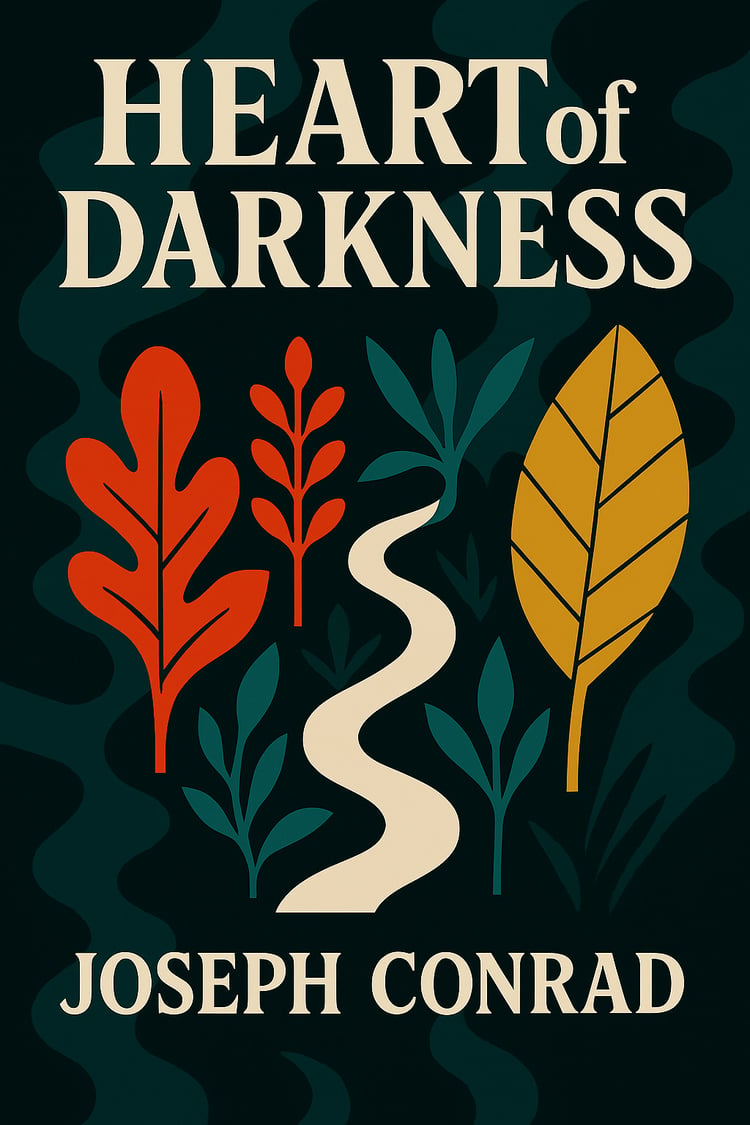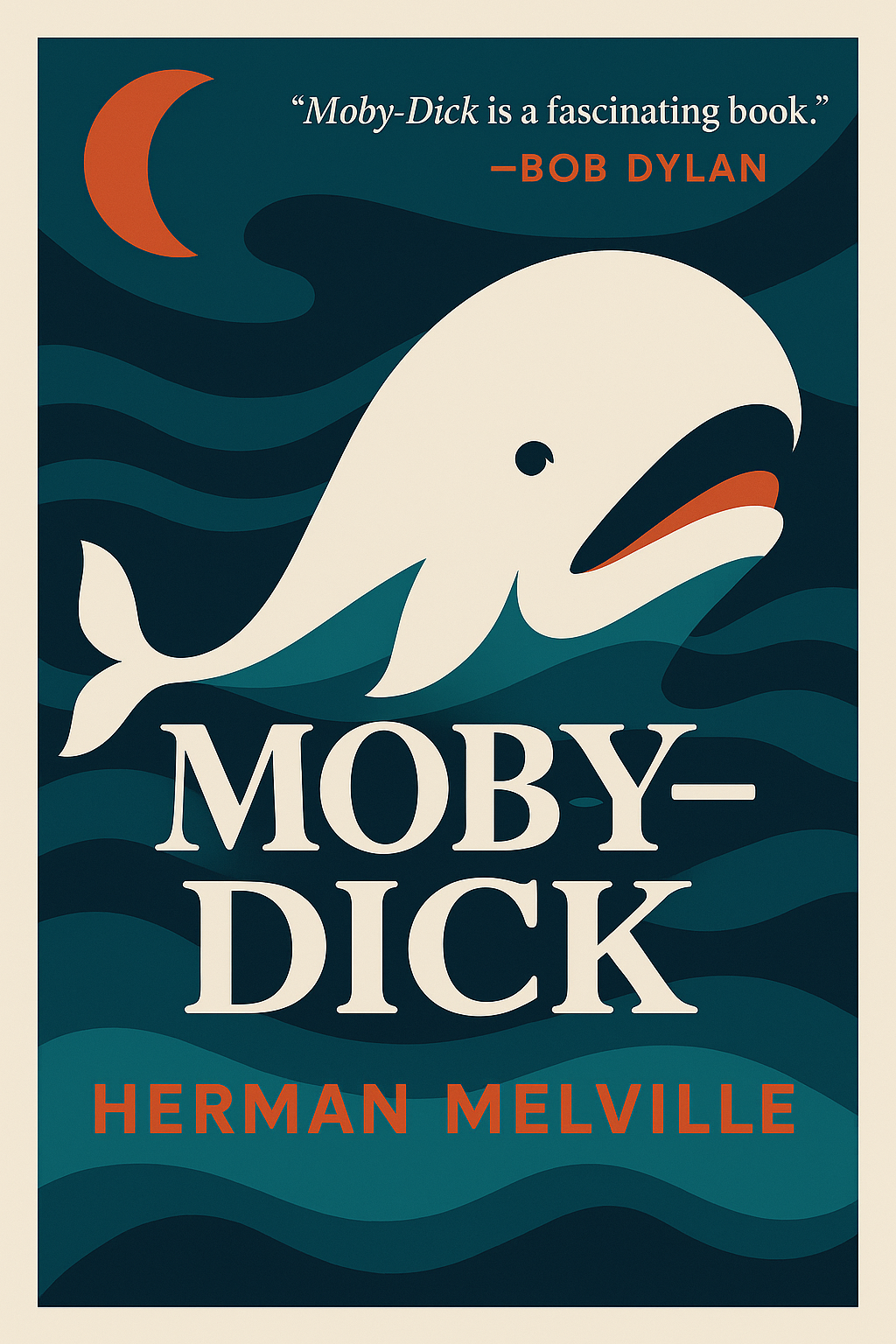
Moby-Dick
Herman Melville’s Moby-Dick stands as a towering achievement in literature, enthralling readers across the ages. This epic saga of vengeance and the unforgiving sea centers on Ishmael, a wandering seaman who signs aboard the Pequod, a whaling vessel commanded by the brooding, fanatical Captain Ahab. Driven by an all-consuming desire to destroy the legendary white whale Moby Dick, Ahab steers his crew into treacherous waters, testing the limits of human resolve.
As the Pequod nears its climactic confrontation, Melville weaves a rich meditation on obsession, fate, and humanity’s struggle against the forces of nature. Through Ishmael’s introspective voice, the novel delves into the depths of existence, challenging readers to reflect on mankind’s place in an indifferent universe.
A profound study of ambition, destiny, and the sublime power of the natural world, Moby-Dick remains an essential masterpiece. With its breathtaking prose, indelible characters, and timeless questions, it continues to resonate as a cornerstone of great literature.
About the author
Herman Melville (1819–1891) was one of America’s most iconic novelists and thinkers, celebrated for his profound explorations of humanity’s relationship with nature and the mysteries of existence. Best known for his magnum opus, Moby-Dick, and his evocative tales such as Bartleby, the Scrivener and Billy Budd, Melville’s works captivate readers with their intricate symbolism, philosophical depth, and vivid depictions of life at sea. His literary legacy endures as a cornerstone of American literature, offering timeless reflections on the human spirit and its place in an ever-changing world.



